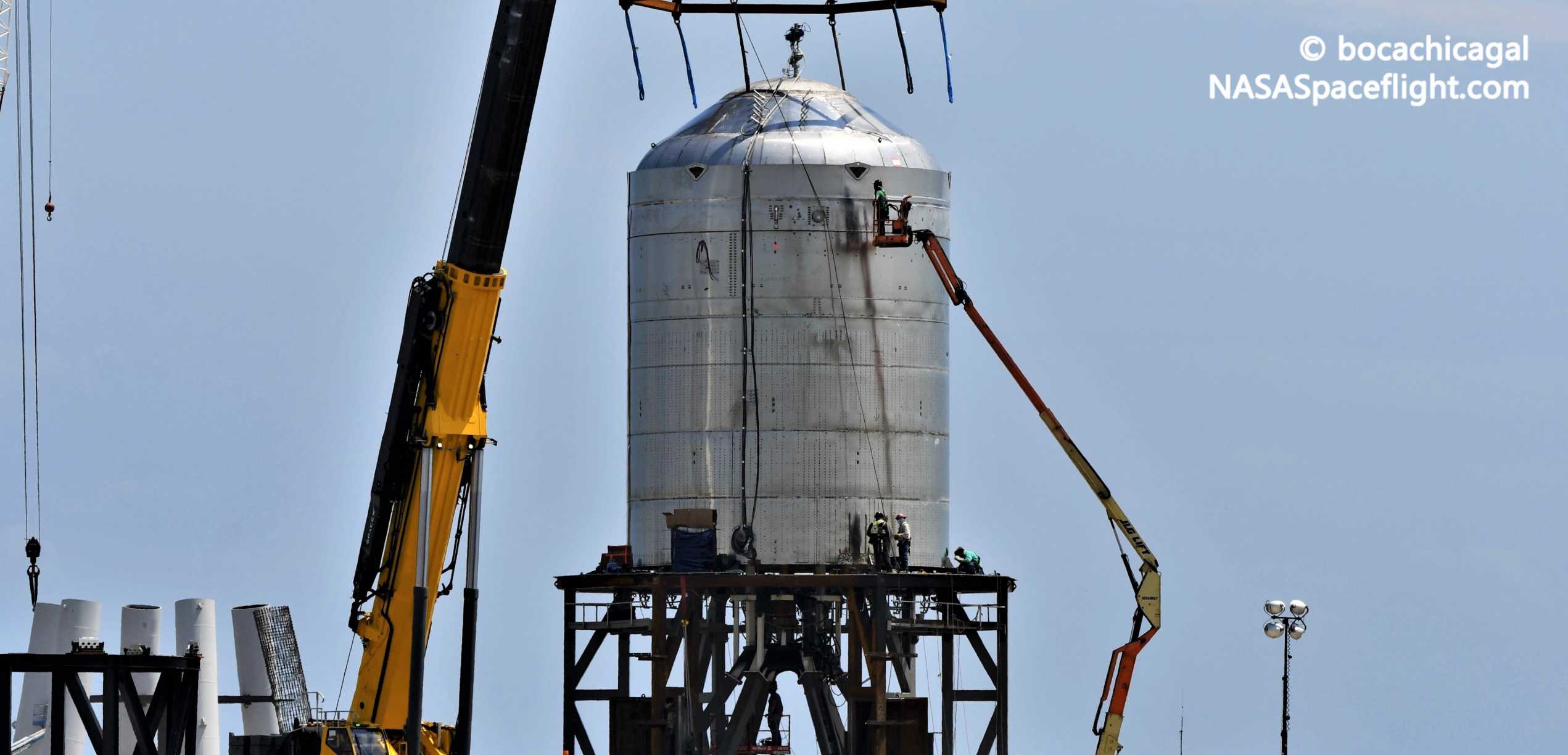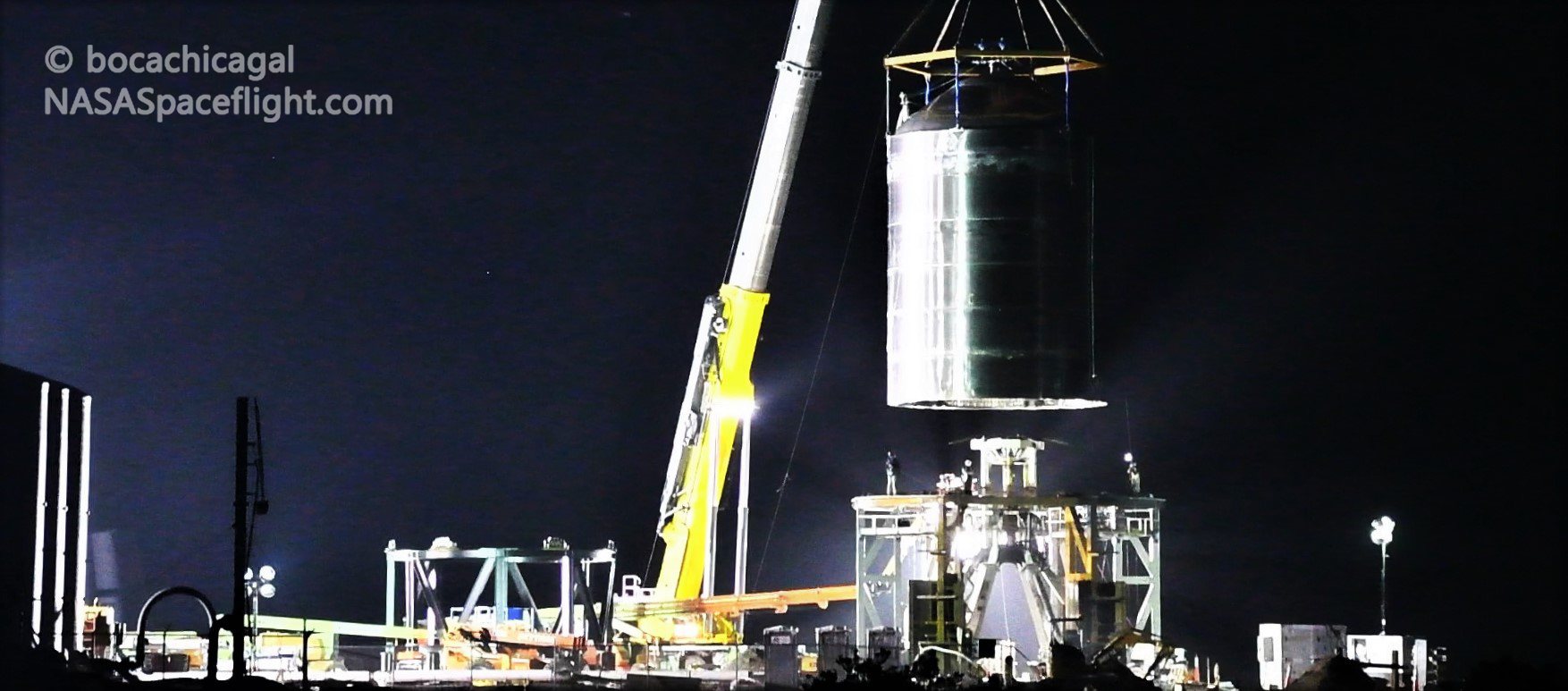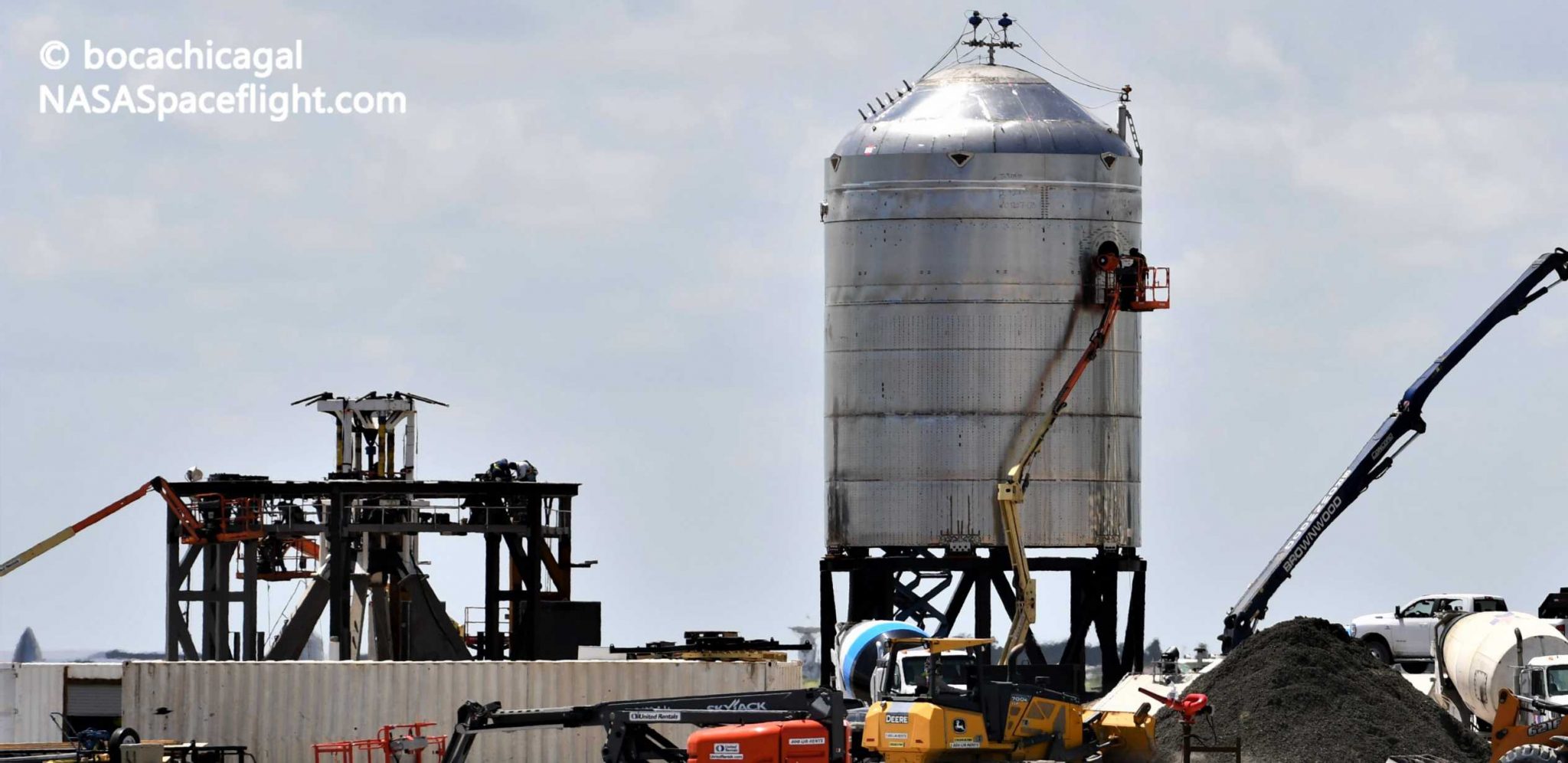
SpaceX Starship test tank set for destructive finale after ‘cryo proof’
by Eric RalphSpaceX’s fourth Starship test tank is set for a destructive finale after completing a “cryo proof” pressure test on Thursday.
SpaceX’s newest Starship test tank – SN7.1 – is the second in a series of two planned prototypes, both designed to test the viability of using a new steel alloy to build future Starships and Super Heavy boosters. CEO Elon Musk says that SpaceX is technically customizing its own steel alloy for Starship production but Musk’s comments and the results from SN7 testing in June 2020 point towards an offshoot of 304L with minor metallurgical tweaks.
Prior to SN7’s test campaign, Musk revealed that the main goal of the new alloy was to reduce the brittleness of Starship tanks and any adjacent steel components under cryogenic conditions (i.e. extreme cold). Ultimately, SN7 appeared to confirm that the new alloy’s behavior was far more forgiving under cryogenic loads, reaching what were believed to be record pressures before the tank finally burst on June 24th.
Following in SN7’s footsteps, SN7.1 is much closer to an actual Starship prototype.
“SN7.1 is significantly more complex than its sibling and will test a ~304L Raptor mount (thrust puck) and skirt section. The forces and general conditions those new parts will be subjected to are substantially different than most of what SN7 was subjected to, meaning that there is a chance that 304L steel is actually worse in some scenarios.
With any luck, though, SN7.1’s test campaign – scheduled to begin as early as 9pm CDT (UTC-5), September 10th – will be a flawless success, proving that SpaceX’s new steel alloy is superior to 301 for all Starship-related applications. If that’s the case, Starship SN8 – the first full new-alloy prototype – will likely be fully outfitted with a nosecone and header tanks before beginning acceptance testing later this month.”
Teslarati.com — September 10th, 2020
For SN7.1, increased ductility could theoretically be a mixed bag. Assuming SpaceX has also built the thrust puck out of 304L-adjacent steel, it may end up being too squishy under the extreme forces it will be subjected to. At full throttle, the thrust of three Raptor engines will compress the thrust puck – a cone with dimensions roughly the same as a large circular table – with the equivalent force of a ~600 metric ton (1.3 million lb) weight.

On September 10th, SpaceX put SN7.1 through its paces, performing a cryogenic proof test with liquid nitrogen (LN2) while the tank was still installed on the simple steel frame used to support it during production and transport. That simple decision offers a brief glimpse at the extensive planning that allows SpaceX to optimize for speed and efficiency while still conducting successful tests. While SpaceX could have technically installed SN7.1 directly onto a brand new launch mount custom-built for the exact kind of testing expected, the company instead left the tank on its build stand – much cheaper and far easier to replace than the former.
Technically, moving directly to the launch mount would have slightly simplified the test process, but a tank rupture during a routine cryogenic proof test could have extensively damaged or destroyed the mount, requiring weeks of work to build a full replacement. After SN7.1 successfully completed a cryogenic pressure test on September 10th, SpaceX simply lifted it off its work stand and installed it on a custom-built launch mount.

As early as 9pm CDT (UTC-5) on September 14th, SpaceX will once again load SN7.1 with liquid nitrogen. This time around, the tank – after reaching flight pressures of 7.5 to 8+ bar (110-120+ psi) – will be subjected to the simulated thrust of three Raptor engines by a series of hydraulic rams. Based on a public schedule of road closures, at least two tests are planned. The first will likely put SN7.1 through a range of Raptor thrust scenarios and profiles under the same tank pressures needed for orbital Starship flights. If that test is successful, SpaceX may move SN7.1 back to its work stand before intentionally pressurizing the tank until it bursts sometime around September 17th.